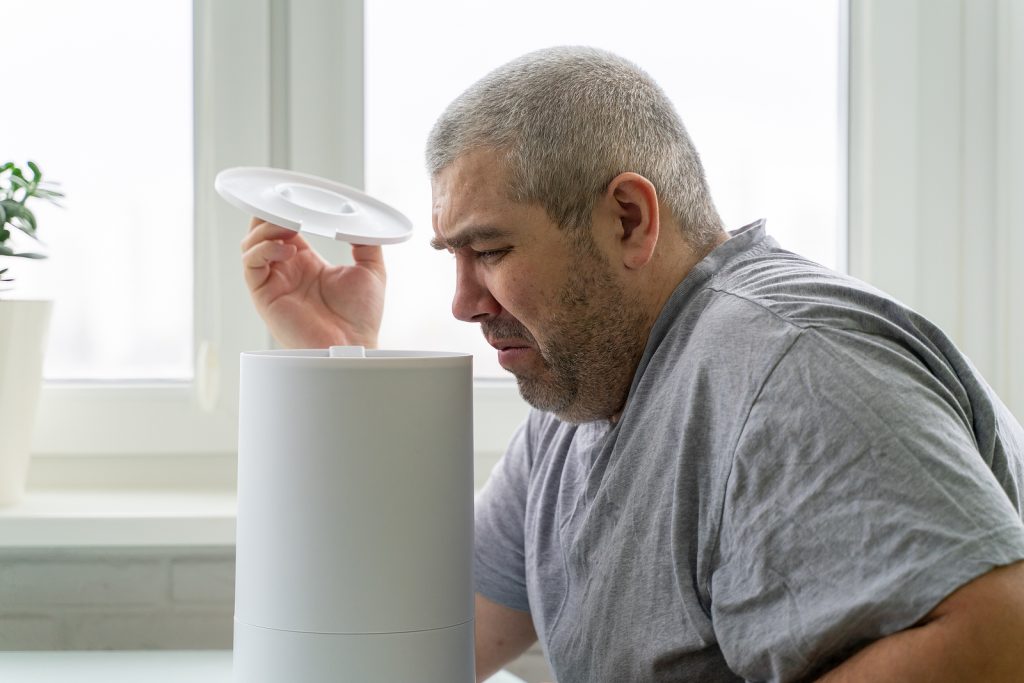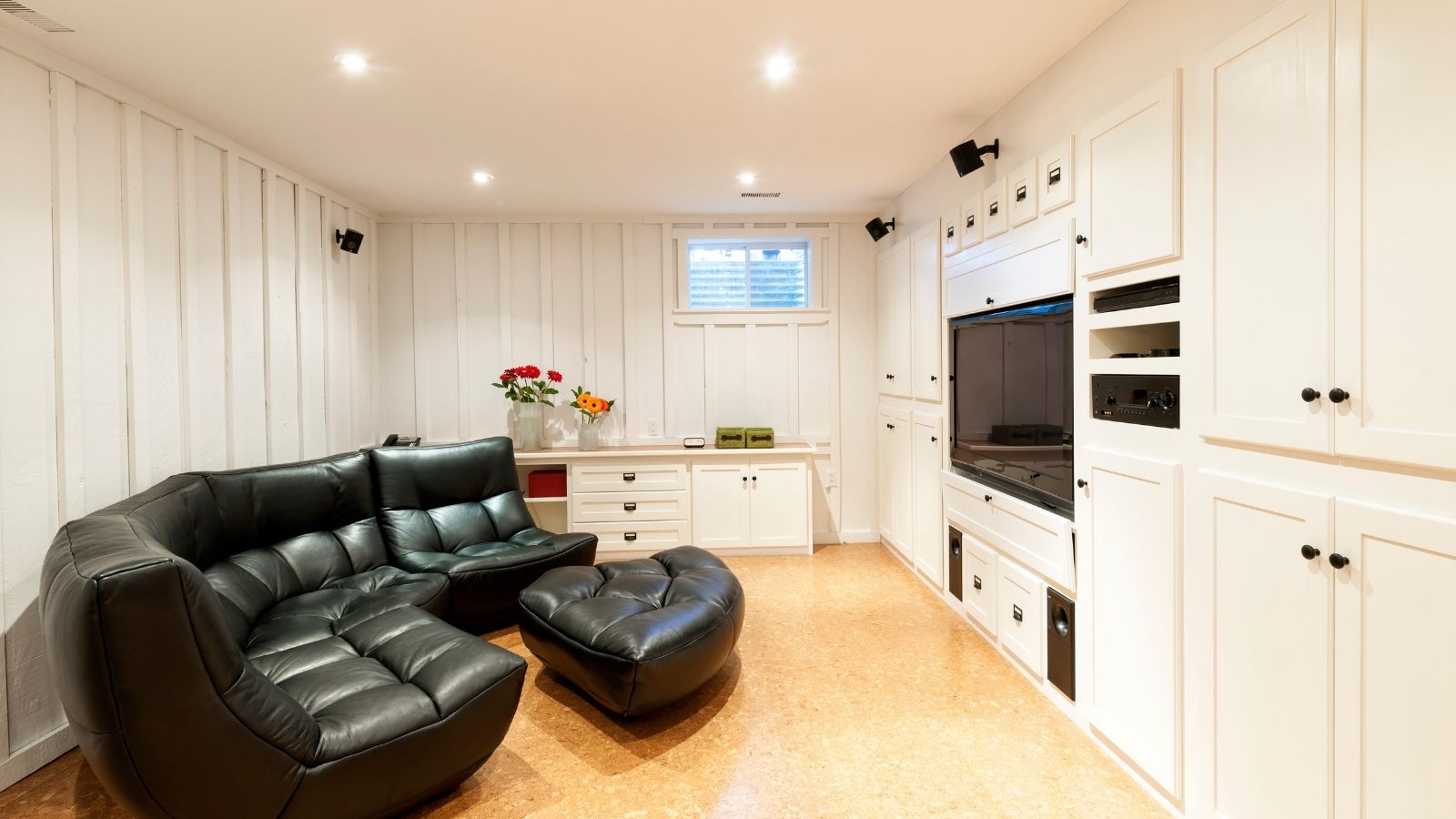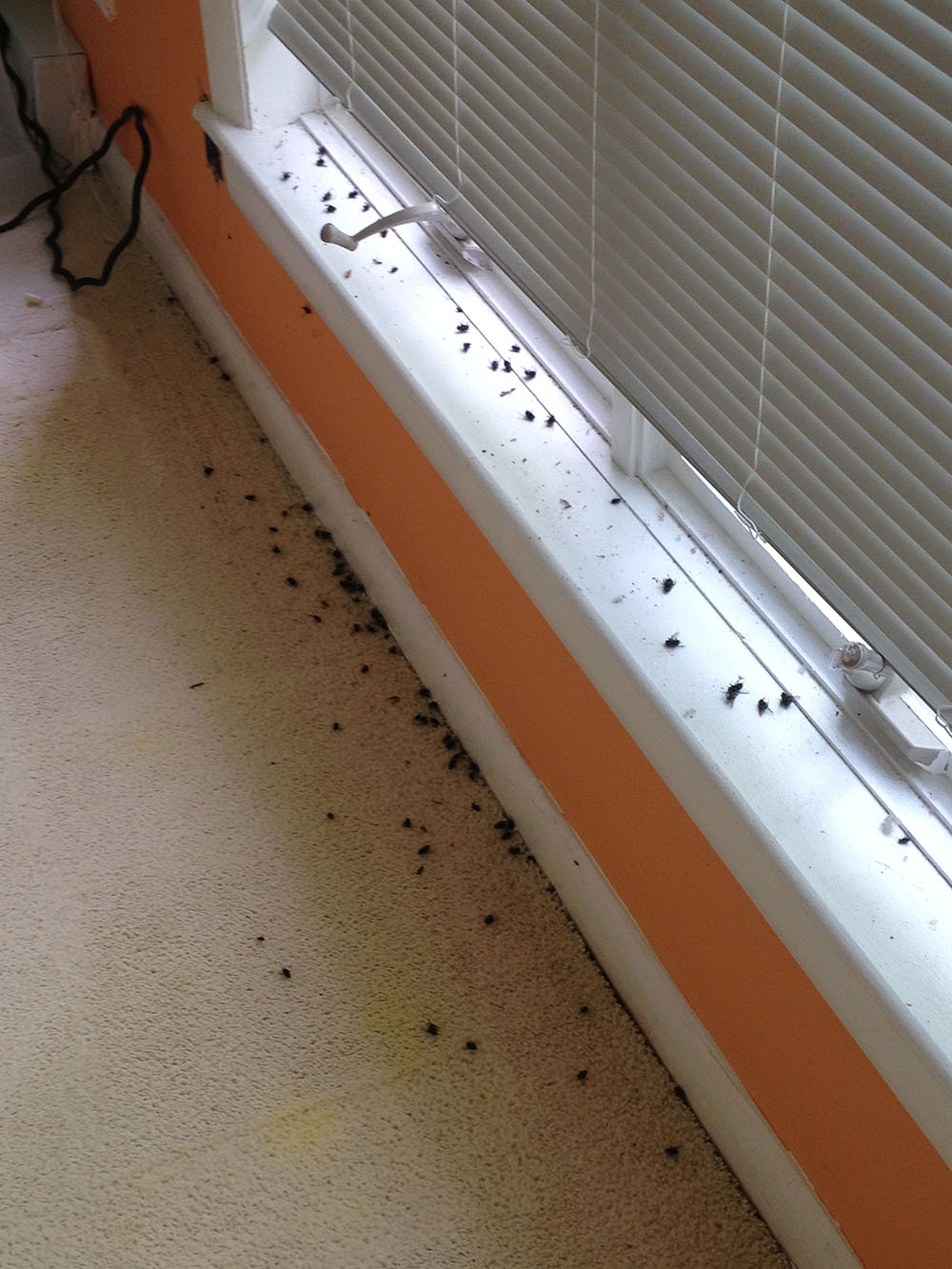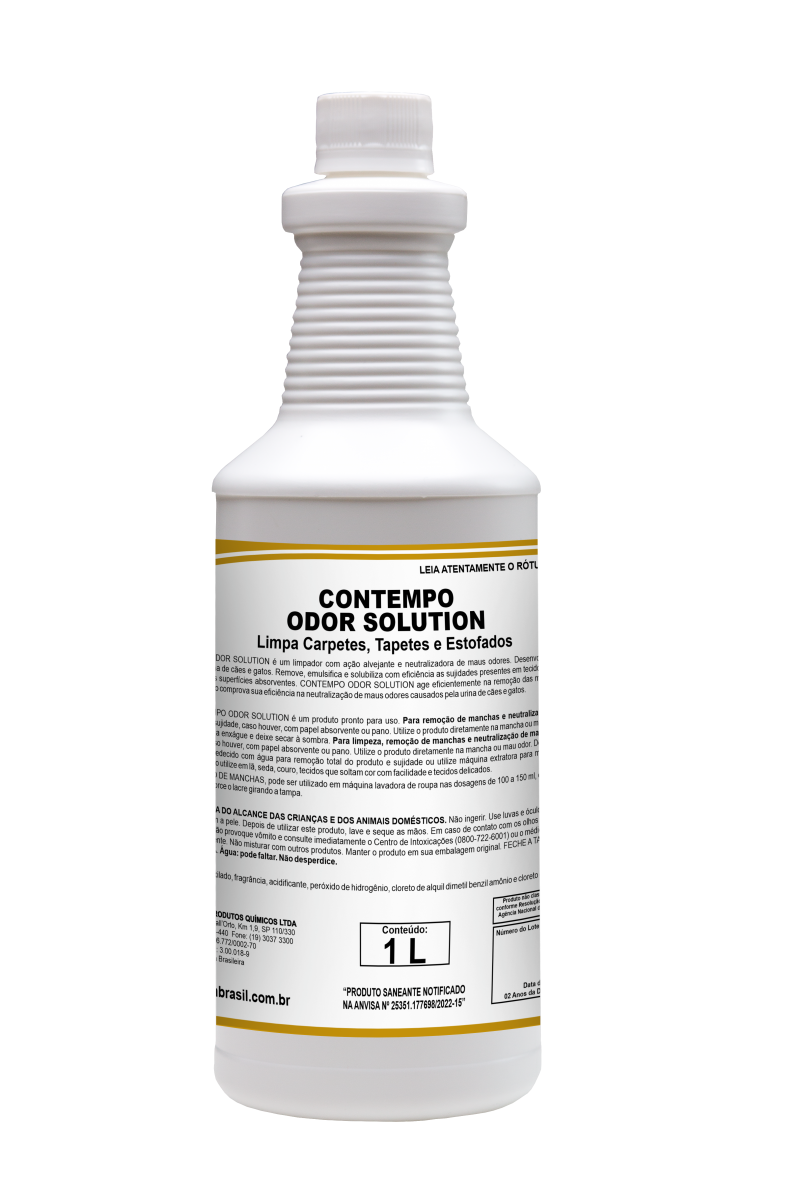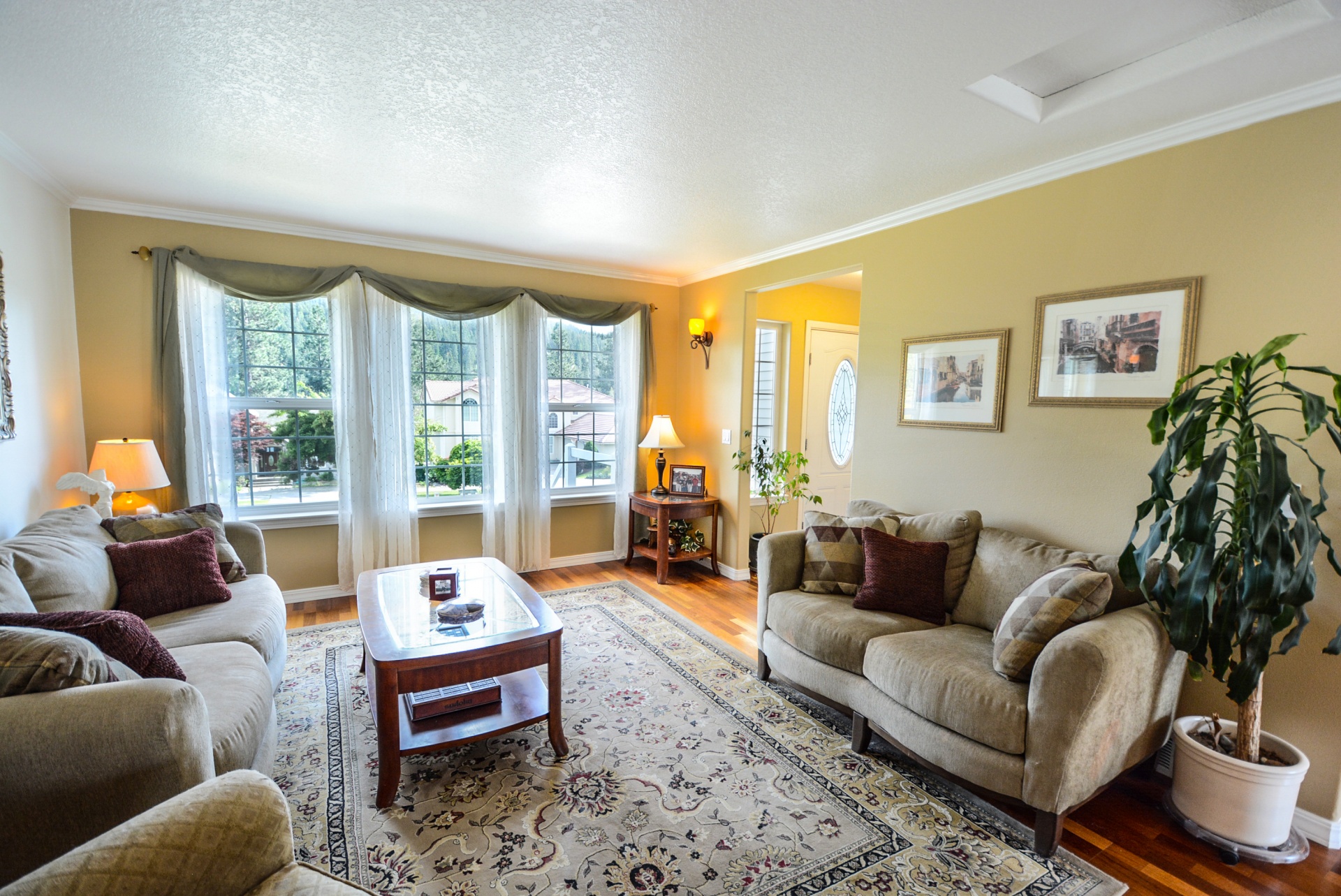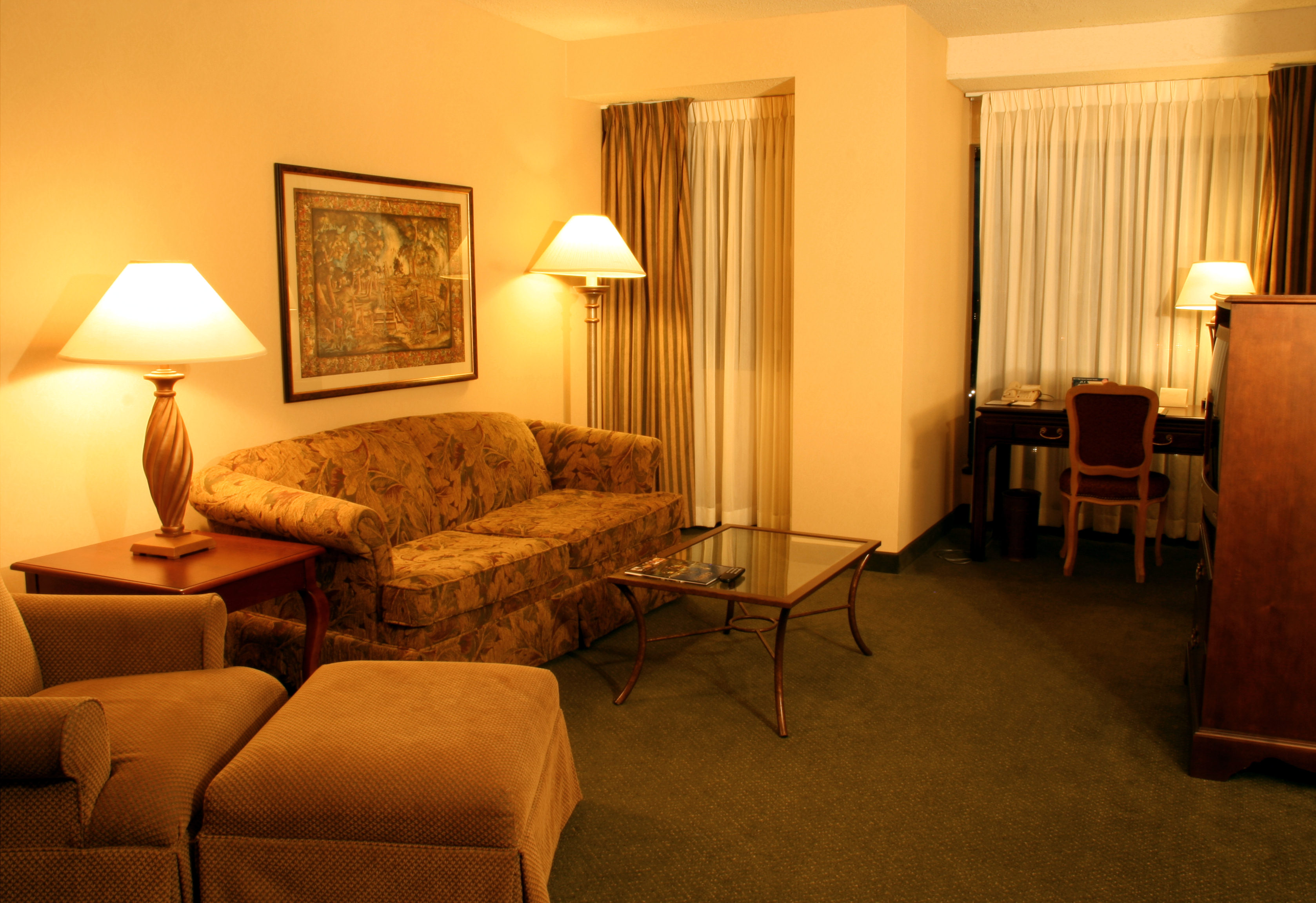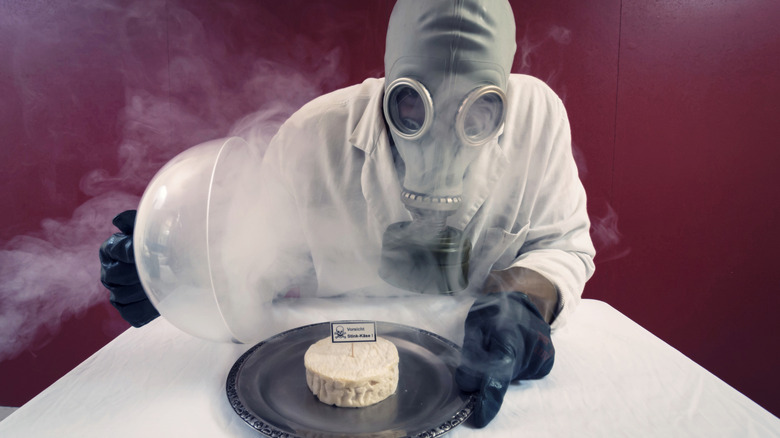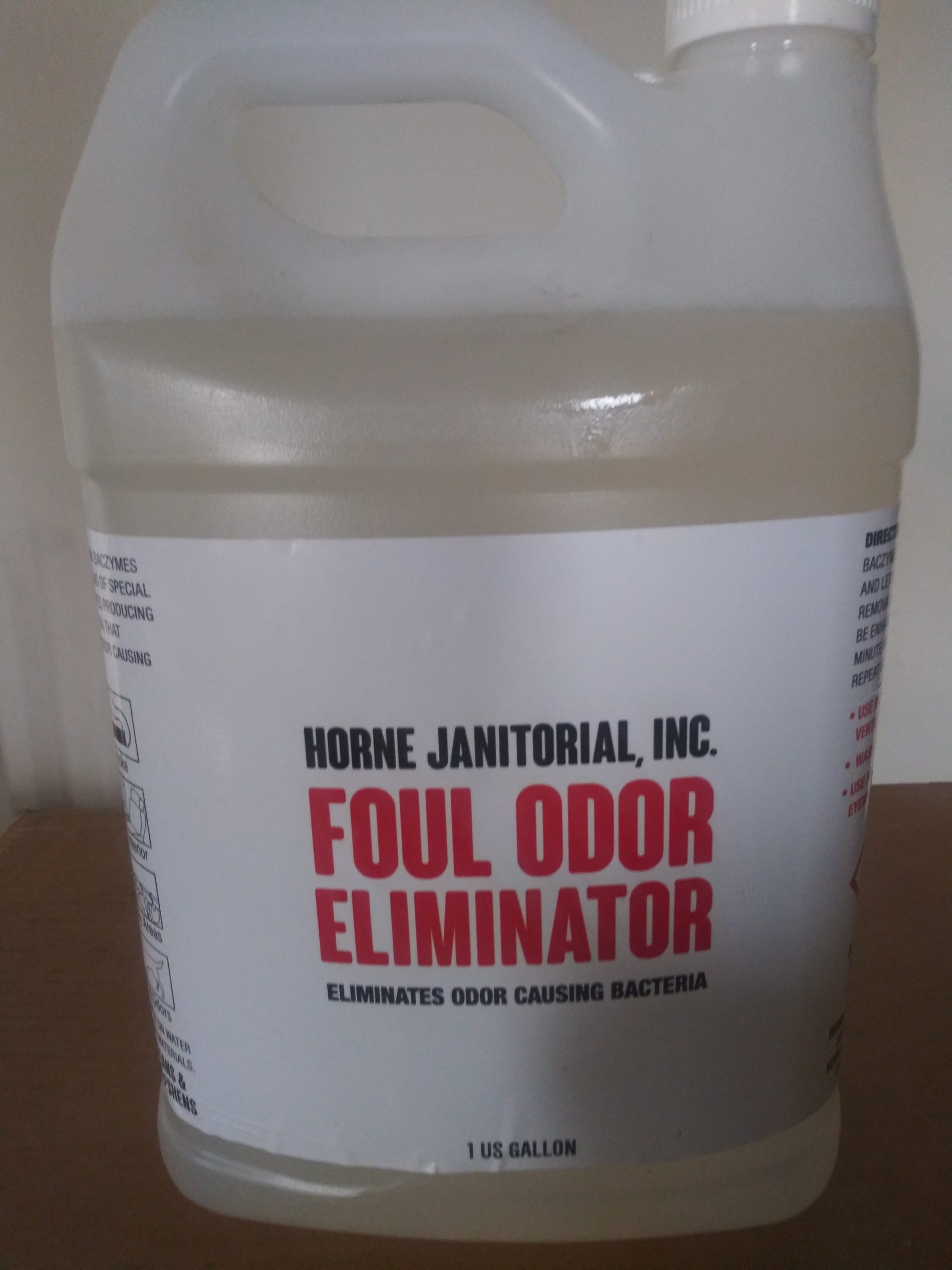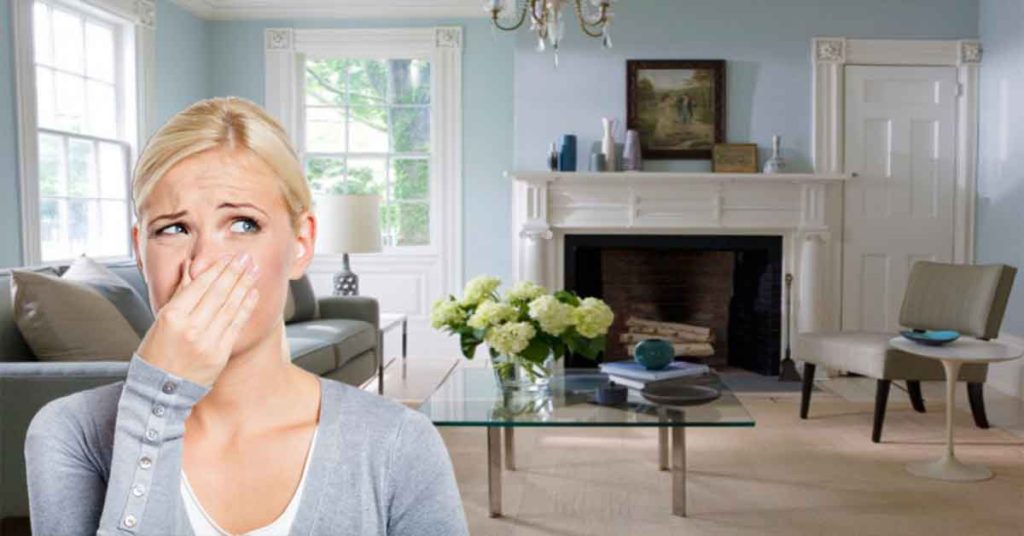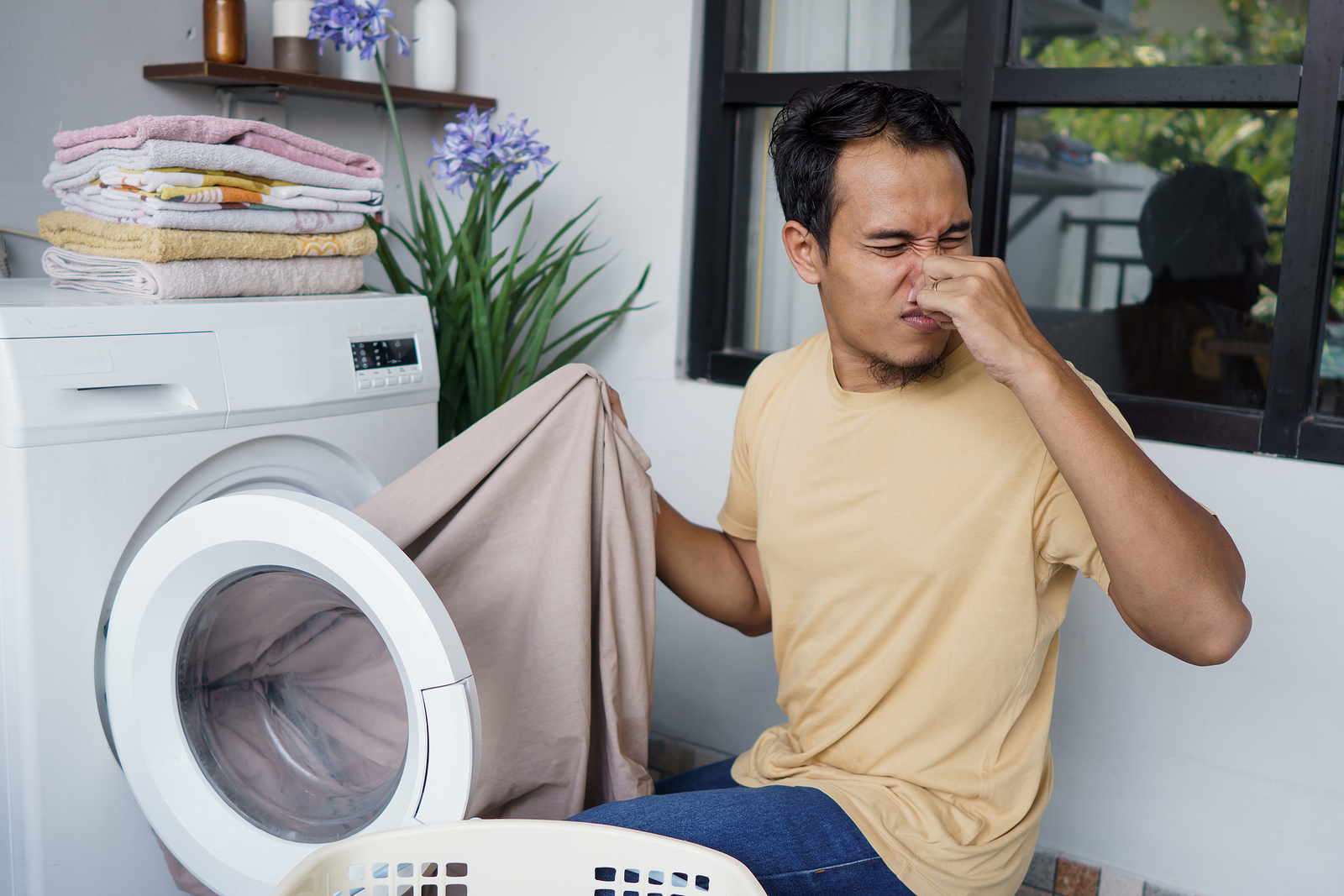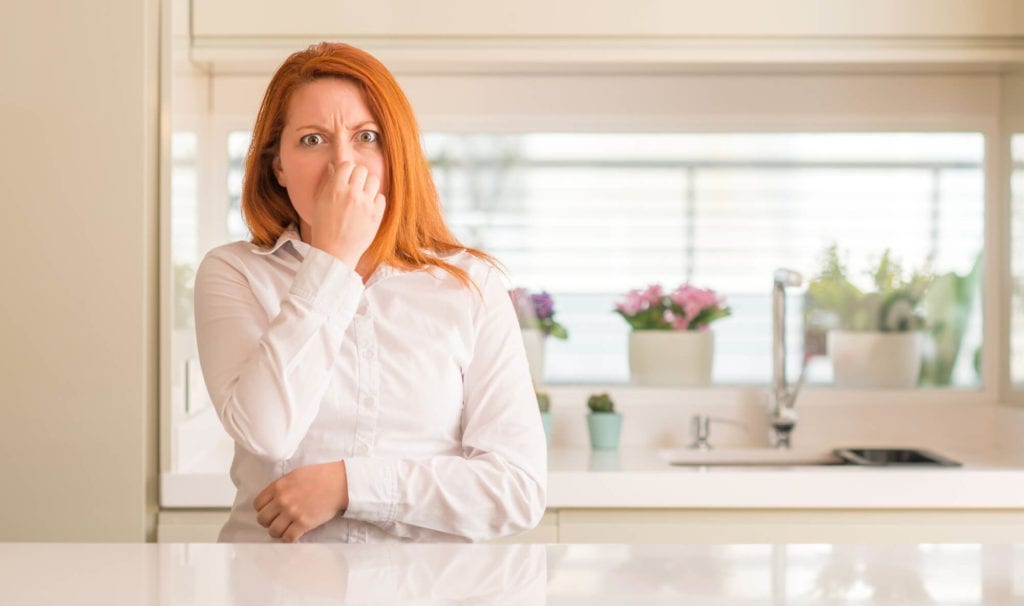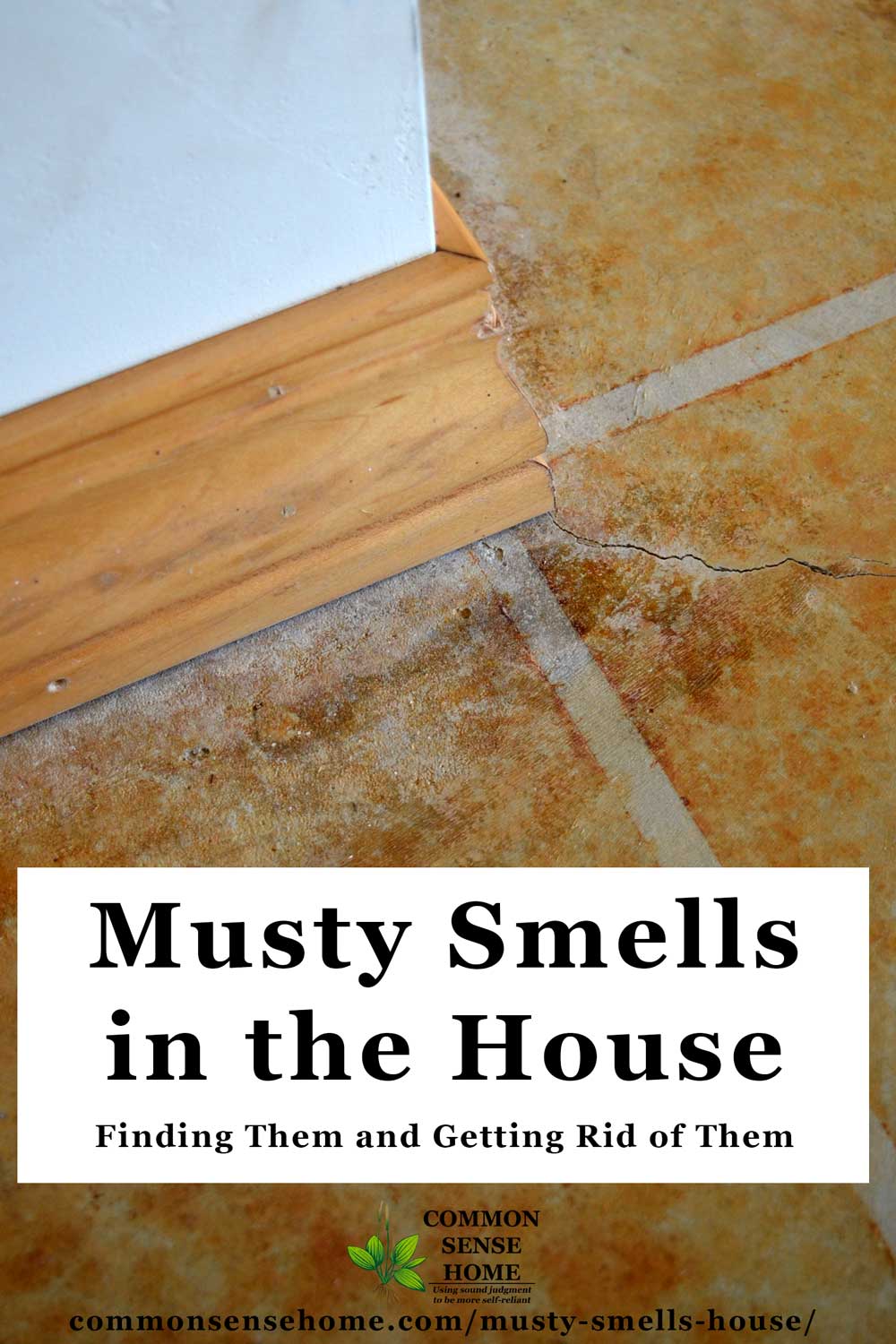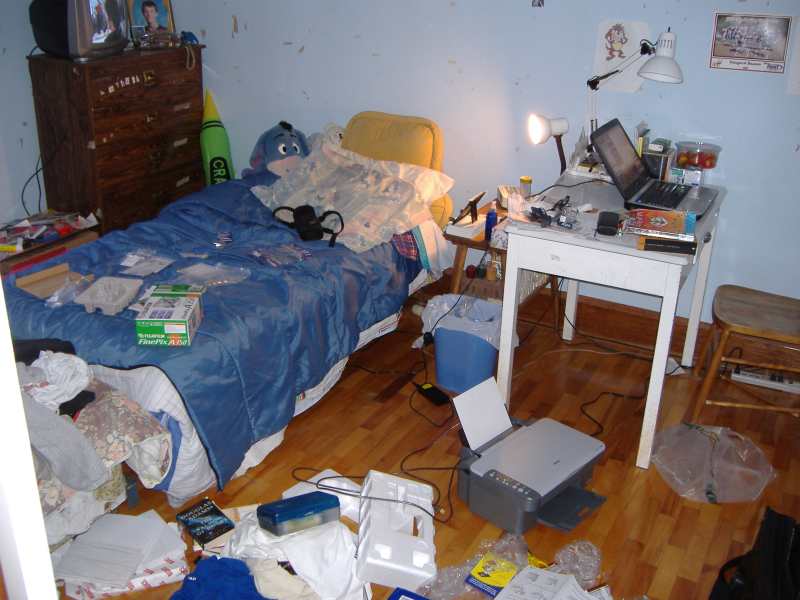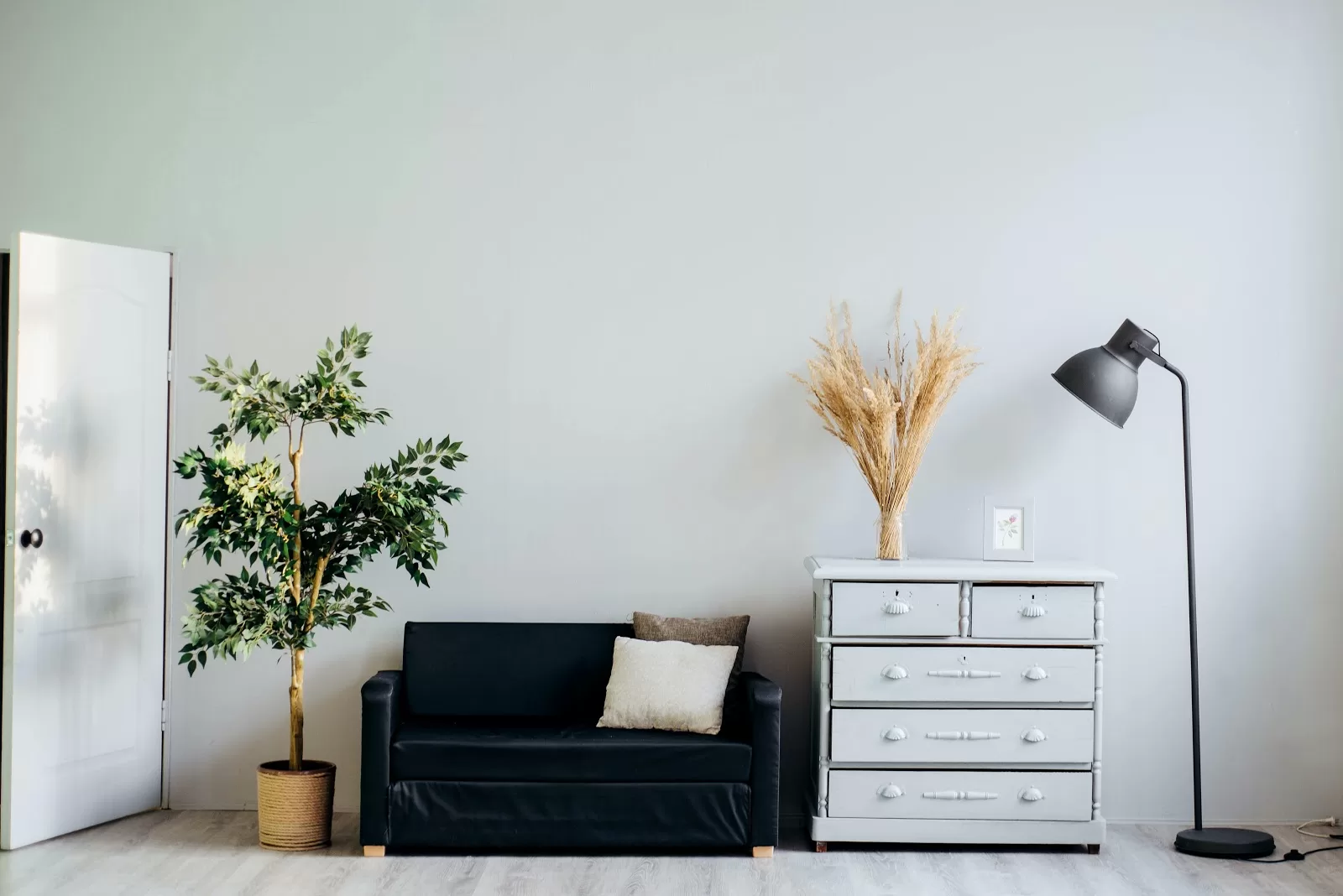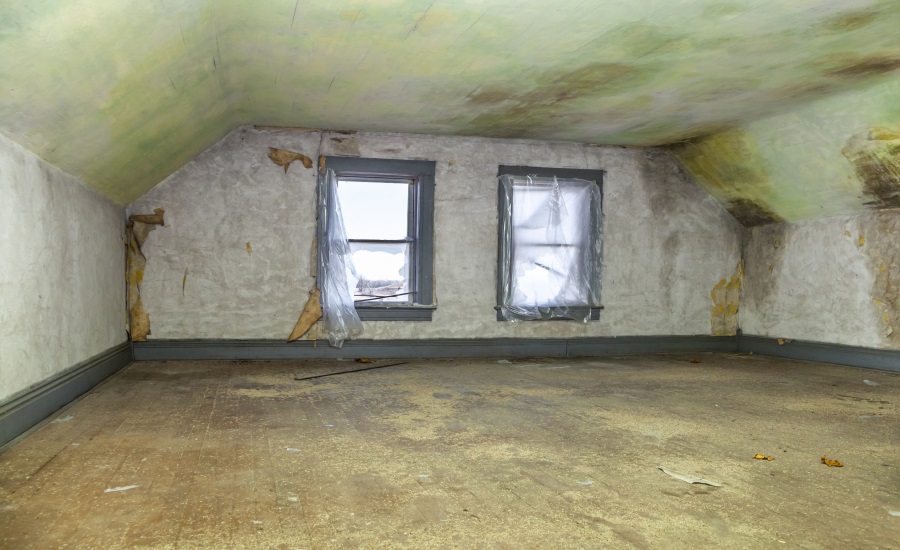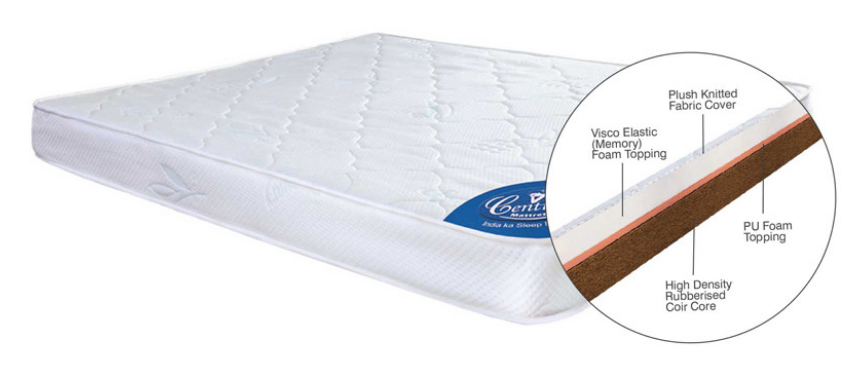If you've noticed a musty smell in your living room, you're not alone. This unpleasant odor is a common issue that many homeowners face. It can be frustrating and embarrassing, especially when guests come over. But don't worry, there are ways to get rid of the musty smell and make your living room fresh and inviting once again. The first step to eliminating the musty smell in your living room is to identify the source. It could be caused by a variety of factors, such as mold, mildew, or even pets. Once you know the source, you can take the necessary steps to remove it and prevent the smell from coming back. One possible cause of musty smell in the living room is mold growth. This can happen if there is excess moisture in the room, whether from a leak or high humidity levels. Mold thrives in damp and dark environments, so it's not uncommon for it to grow in hidden areas of the living room, such as behind furniture or inside walls. It's important to address mold growth promptly as it can cause health issues and damage your home. Another potential culprit for the musty smell is mildew. Like mold, mildew also thrives in moist and warm environments. It can grow on surfaces like walls, carpets, and upholstery, giving off a musty odor. If the mildew is not removed, it can spread and cause damage to your living room and belongings. Pets can also contribute to a musty smell in the living room. If you have a furry friend who likes to spend time in the living room, their sweat and dander can build up and create an unpleasant odor. This is especially true if you have carpeting in your living room, as it can trap pet odors and make it difficult to get rid of them. Musty Smell in Living Room
Have you ever walked into your living room and noticed a strange odor? It's not uncommon for unusual scents to linger in this space. Some of the most common causes of a strange odor in the living room include cooking smells, dirty air filters, and even old furniture. Cooking smells are a common culprit of strange odors in the living room, especially if you have an open floor plan. The scent from your kitchen can easily travel and linger in your living room, making it smell like a mixture of different foods. To combat this, make sure to properly ventilate your kitchen while cooking and use air fresheners or candles in your living room. Dirty air filters can also contribute to a strange odor in your living room. As air flows through the vents, it can carry dust and debris that get trapped in the filter. Over time, this can create a musty smell in your living room. To prevent this, make sure to regularly change your air filters. If you have old furniture in your living room, it could be the source of the strange odor. Over time, furniture can absorb and trap odors from pets, spills, and everyday use. If your furniture is old and has a musty smell, it may be time to replace it. You can also try using furniture sprays or air fresheners to mask the odor. Strange Odor in Living Room
An unusual scent in your living room can be a cause for concern. It's important to identify the source of the smell and address it promptly to prevent any potential health issues. Some possible reasons for an unusual scent in the living room include dead animals, water damage, and gas leaks. If you notice a foul odor that resembles something rotting in your living room, it could be a sign of a dead animal. This is more common in homes with attics or crawl spaces where animals may find their way in and pass away. If you suspect this is the case, it's best to call a professional to safely remove the animal and deodorize the area. Water damage can also cause an unusual scent in the living room. If you've recently had a water leak or flood, it's important to address it immediately. If left untreated, water damage can lead to mold growth, which can cause a musty smell and potential health issues. Make sure to thoroughly dry and clean any water-damaged areas in your living room. A gas leak is another possible cause of an unusual scent in the living room. If you notice a strong smell of gas, it's important to evacuate your home and call the gas company immediately. Gas leaks can be dangerous and should be addressed by professionals. Unusual Scent in Living Room
A pungent smell in your living room can be overwhelming and hard to ignore. It's important to take the necessary steps to eliminate the smell and prevent it from coming back. Some common causes of a pungent smell in the living room include cigarette smoke, pet urine, and rotten food. If you or someone in your household is a smoker, cigarette smoke can easily permeate the walls and furniture in your living room, leaving a strong and pungent smell. To get rid of this smell, you may need to deep clean your living room and use odor neutralizers. It's also a good idea to smoke outside or in a designated smoking area to prevent the smell from coming back. Pet urine can also cause a pungent smell in the living room. If you have pets, accidents can happen, and if not properly cleaned, the smell can linger. It's important to clean up any accidents immediately and use pet-specific odor neutralizers to eliminate the smell. It's also a good idea to regularly clean your carpets and furniture to prevent pet odors from building up. If you accidentally left food in your living room and it spoiled, it can create a pungent smell. This can happen if you have young children who may leave food hidden in the living room or if you've had a party and forgot to throw away leftovers. Make sure to thoroughly clean and deodorize the area to get rid of the smell. Pungent Smell in Living Room
A foul odor in the living room can be unpleasant and embarrassing. It's important to determine the source of the smell and find a solution to get rid of it. Some possible reasons for a foul odor in the living room include dirty carpets, a dead animal, and sewage backups. Dirty carpets can trap odors from spills, pet accidents, and everyday use, creating a foul smell in your living room. It's important to regularly vacuum and steam clean your carpets to prevent odors from building up. You can also use carpet deodorizers to keep your living room smelling fresh. As mentioned earlier, a dead animal can also cause a foul odor in your living room. This is more common in homes with attics or crawl spaces, but it can happen in any space where animals can enter. If you suspect a dead animal is the cause of the smell, call a professional to safely remove it and deodorize the area. In more extreme cases, a sewage backup can cause a foul odor in the living room. This can happen if your sewer system gets clogged or damaged. If you suspect a sewage backup, it's important to call a professional immediately to address the issue and prevent any potential health hazards. Foul Odor in Living Room
Have you noticed an odd smell in your living room that you just can't seem to pinpoint? It could be coming from a variety of sources, such as household products, indoor plants, or even your own body. Household products, such as cleaners, air fresheners, and scented candles, can emit strong and sometimes odd smells in your living room. While these products are meant to make your home smell nice, they can also contribute to a mix of scents that can be off-putting. Consider using natural and unscented products to avoid these strange smells. Indoor plants can also cause an odd smell in the living room. Some plants, like the snake plant and peace lily, have a strong and unique smell that some people find unpleasant. If you have one of these plants in your living room, consider moving it to another area of your home or replacing it with a plant that has a more pleasant scent. Believe it or not, our own bodies can also create odd smells in the living room. If you've spent a long day outside or at the gym, you may bring in a sweaty or musty smell. Make sure to change your clothes and shower before relaxing in the living room to prevent these smells from lingering. Odd Smell in Living Room
A rotten smell in the living room is not only unpleasant, but it can also be a sign of a more serious issue. It's important to identify the source of the smell and take action to get rid of it. Some possible causes of a rotten smell in the living room include old food, dead animals, and water damage. If you accidentally left food in the living room and it spoiled, it can create a rotten smell. This can happen if you have young children who may leave food hidden in the living room, or if you've had a party and forgot to throw away leftovers. Make sure to thoroughly clean and deodorize the area to get rid of the smell. As mentioned earlier, a dead animal can also cause a rotten smell in your living room. If you suspect a dead animal is the cause of the smell, call a professional to safely remove it and deodorize the area. Water damage can also be a possible cause of a rotten smell in the living room. If you've had a leak or flood, it's important to address it immediately before it leads to mold growth. Make sure to thoroughly dry and clean any water-damaged areas in your living room to prevent the smell from getting worse. Rotten Smell in Living Room
A musty odor in the living room is a common issue that many homeowners face. It can be difficult to get rid of and can make your living room feel unwelcoming. Some possible reasons for a musty odor in the living room include mold, mildew, and high humidity levels. As mentioned earlier, mold and mildew can thrive in damp and dark environments, creating a musty odor in your living room. To get rid of the smell, you'll need to address the source, which could be hidden in walls or under furniture. It's important to properly clean and dry the affected areas to prevent the mold and mildew from coming back. High humidity levels can also lead to a musty smell in the living room. If your living room doesn't have proper ventilation or is prone to moisture, it can create the perfect environment for mold and mildew to grow. Consider using a dehumidifier or opening windows to reduce humidity levels and prevent the musty smell. Musty Odor in Living Room
A stale smell in the living room can make your space feel uninviting and unclean. It's important to eliminate this smell to make your living room a more pleasant place to be. Some possible causes of a stale smell in the living room include lack of ventilation, dirty air filters, and old furniture. If your living room doesn't have proper ventilation, stale air can get trapped and create a musty and unpleasant smell. Make sure to open windows and use fans to circulate fresh air in your living room. You can also use air purifiers to help eliminate stale odors. Dirty air filters can also contribute to a stale smell in the living room. As air flows through the vents, it can carry dust and debris that get trapped in the filter. Over time, this can create a musty smell in your living room. Make sure to regularly change your air filters to prevent this. Old furniture can also cause a stale smell in the living room. Over time, furniture can absorb and trap odors from pets, spills, and everyday use. If your furniture is old and has a musty smell, it may be time to replace it. You can also try using furniture sprays or air fresheners to mask the odor. Stale Smell in Living Room
A moldy scent in the living room is a strong and unpleasant odor that can be a sign of mold growth. It's important to address this issue promptly to prevent any potential health hazards. Some possible reasons for a moldy scent in the living room include water damage, high humidity levels, and poor ventilation. Water damage can create the perfect environment for mold growth, especially if it's not addressed immediately. If you've had a leak or flood in your living room, make sure to thoroughly dry and clean the affected areas to prevent mold from growing and causing a moldy smell. High humidity levels can also cause a moldy scent in the living room. To prevent this, make sure your living room has proper ventilation and consider using a dehumidifier if needed. You can also open windows and use fans to circulate fresh air and reduce humidity levels. Poor ventilation can also contribute to a moldy smell in the living room. If your living room doesn't have adequate air flow, it can create a damp and stagnant environment where mold can thrive. Make sure to open windows and use fans to circulate fresh air and prevent mold growth. Moldy Scent in Living Room
The Importance of Proper Ventilation in Eliminating Weird Smells in Your Living Room
 If you've ever walked into your living room and noticed a strange, lingering smell, you're not alone. Many homeowners experience this issue and often chalk it up to something they may have cooked or spilled. However, if the smell persists, it could be a sign of a bigger problem – poor ventilation.
Proper ventilation
is crucial in maintaining a fresh and clean living space. It allows for the circulation of fresh air and the removal of stale air, along with any unpleasant odors. Without proper ventilation, the air inside your home can become stagnant and trap odors, leading to that weird smell in your living room.
If you've ever walked into your living room and noticed a strange, lingering smell, you're not alone. Many homeowners experience this issue and often chalk it up to something they may have cooked or spilled. However, if the smell persists, it could be a sign of a bigger problem – poor ventilation.
Proper ventilation
is crucial in maintaining a fresh and clean living space. It allows for the circulation of fresh air and the removal of stale air, along with any unpleasant odors. Without proper ventilation, the air inside your home can become stagnant and trap odors, leading to that weird smell in your living room.
What Causes Poor Ventilation?
 There are a few common factors that can contribute to poor ventilation in your living room. One of the main culprits is a lack of windows or openings for air to flow in and out. This is especially common in older homes that were not designed with proper ventilation in mind.
Dampness and humidity
can also play a role in poor ventilation. If there is excess moisture in the air, it can lead to the growth of mold and mildew, which can produce unpleasant odors. Additionally, if your home has a
poorly designed HVAC system
, it may not be able to effectively circulate air throughout your living room.
There are a few common factors that can contribute to poor ventilation in your living room. One of the main culprits is a lack of windows or openings for air to flow in and out. This is especially common in older homes that were not designed with proper ventilation in mind.
Dampness and humidity
can also play a role in poor ventilation. If there is excess moisture in the air, it can lead to the growth of mold and mildew, which can produce unpleasant odors. Additionally, if your home has a
poorly designed HVAC system
, it may not be able to effectively circulate air throughout your living room.
The Effects of Poor Ventilation
 Aside from causing unpleasant odors, poor ventilation can also have negative effects on your health and the overall condition of your home.
Mold and mildew
growth can lead to respiratory issues and aggravate allergies. Stagnant air can also cause condensation, which can lead to dampness and damage to your walls and furniture.
Aside from causing unpleasant odors, poor ventilation can also have negative effects on your health and the overall condition of your home.
Mold and mildew
growth can lead to respiratory issues and aggravate allergies. Stagnant air can also cause condensation, which can lead to dampness and damage to your walls and furniture.
Improving Ventilation in Your Living Room
 The first step in improving ventilation in your living room is to ensure that there is proper air circulation. This can be achieved by installing
ceiling fans
or opening windows whenever possible. Additionally, consider investing in a
dehumidifier
to reduce excess moisture in the air.
If your living room lacks windows, consider installing a
ventilation system
that can circulate air in and out of your home. This can be as simple as adding vents in your walls or investing in a more complex system that connects to your HVAC system.
In conclusion, the weird smell in your living room could be a sign of poor ventilation. By understanding the importance of proper ventilation and taking steps to improve it, you can eliminate that unpleasant odor and create a healthier and more comfortable living space. Don't let poor ventilation ruin the atmosphere of your home – take action and enjoy a fresh and clean living room.
The first step in improving ventilation in your living room is to ensure that there is proper air circulation. This can be achieved by installing
ceiling fans
or opening windows whenever possible. Additionally, consider investing in a
dehumidifier
to reduce excess moisture in the air.
If your living room lacks windows, consider installing a
ventilation system
that can circulate air in and out of your home. This can be as simple as adding vents in your walls or investing in a more complex system that connects to your HVAC system.
In conclusion, the weird smell in your living room could be a sign of poor ventilation. By understanding the importance of proper ventilation and taking steps to improve it, you can eliminate that unpleasant odor and create a healthier and more comfortable living space. Don't let poor ventilation ruin the atmosphere of your home – take action and enjoy a fresh and clean living room.





